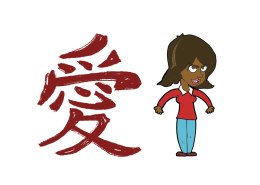If you’re learning Korean or simply curious about the language, you might have come across the word “niga” (or “nega”), often used in conversations. What does the Korean word ‘niga’ or ‘nega’ mean, and why is it important to understand its context?
In this blog post, we’ll break down the meaning of “niga” (or “nega”), its usage in everyday speech, and some of the cultural nuances surrounding it. Whether you’re studying Korean or simply want to know how to use this term properly, read on to learn more.
The Meaning of “Niga” / “Nega”
The words “niga” and “nega” are variations of the same term in the Korean language, and they are essentially equivalent to the English pronoun “you”. However, there’s more to these words than meets the eye, and understanding their proper use is crucial for effective communication in Korean.
- “Niga” (니가): This is an informal version of the word “you.” It is commonly used in casual or familiar conversations, especially among friends, family, or peers. It’s important to note that it is not appropriate to use “niga” when speaking to elders, superiors, or strangers, as it can come across as disrespectful in those contexts.
- “Nega” (내가): While “nega” can also mean “you” in certain informal contexts, it is more commonly used to refer to “I” or “me” in Korean. In this sense, “nega” is the first-person pronoun used when the speaker is referring to themselves.
The Use of “Niga” in Everyday Conversations
In everyday Korean conversations, “niga” is often used when someone wants to emphasize the person they’re talking to, or when they are pointing out or addressing something directly related to the person. It is important to recognize the tone and the relationship between the speakers, as this influences the appropriateness of using “niga.”
For example:
- Niga hwajangsil-e isseoyo? (니가 화장실에 있어요?) – “Are you in the bathroom?”
- Niga mwol hal geoya? (니가 뭘 할 거야?) – “What are you going to do?”
Both of these sentences use “niga” to refer to “you” in a direct and informal way. You would typically use this with someone of the same age or younger, and preferably someone you’re familiar with.
Cultural Considerations: Respect and Formality in Korean
Korean is a language that places great emphasis on respect and formality, especially when addressing others. So, while “niga” may seem like a simple translation of “you,” it carries weight in terms of how respectful or informal the relationship between speakers is.
- Formal/Respectful Language: When speaking to someone of higher status, elders, or strangers, using “niga” may sound disrespectful. Instead, Koreans would use the more polite form of “you,” which is “jeo” (저) or “dangsin” (당신) in appropriate contexts.
- Casual Language: In informal settings or when speaking with close friends, “niga” is perfectly acceptable and can add familiarity to the conversation.
This distinction is essential when navigating Korean social interactions, as using the wrong level of formality can unintentionally offend someone.
Potential Misunderstandings and Cultural Sensitivities
It’s important to note that “niga” can sometimes carry negative connotations or be misunderstood, especially when used in certain contexts. For instance, in more sensitive or serious conversations, using “niga” could be perceived as aggressive or rude.
Moreover, when “niga” is used in a confrontational tone, it can sound like an insult, much like calling someone “you” in an abrupt manner in English. This is why it’s crucial to pay attention to the tone, the situation, and the relationship between the speakers when using this term.
Understanding the Word “Niga” and Its Context
In conclusion, the Korean word “niga” (or “nega”) essentially means “you” in informal conversations, but its meaning and appropriateness depend heavily on the context, formality, and relationship between speakers. Using it with friends and people you’re close to is fine, but be cautious when addressing elders or superiors, as the tone and respect are central to Korean social norms.
Understanding when and how to use words like “niga” is essential in mastering not only the language but also the cultural nuances that come with it. So, the next time you’re speaking Korean, make sure to pay attention to who you’re talking to and the level of respect appropriate for the situation!

